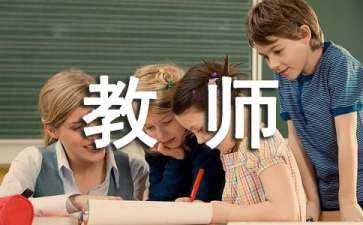unit12 don’t eat in class.
taught by zhang shuhui yang jinquan ge yanxia li songling liu mei
i. language goal:
key words and phrases:
in class, classroom, hallway, gym, arrive, late, go out, practice, inside, outside, uniform, sneakers, fight;
can, can’t, have to
new language:
don’t eat in class.
can we wear hats in school? no, we can’t.
we don’t have to wear a school uniform.
we can eat in the cafeteria, but we can’t eat in the classrooms.
ii. importance: talking about the rules.
difficulties: some points about the imperative sentence.
iii. teaching steps:
section a
step 1 greetings
step 2 bring some additional materials to class.
step 3 some new words about this part
(1a) point out the students in the picture and the boxes next to them. say, each of these students is breaking one of these rules. write the number of the rule each student is breaking in the box next to him or her. then, correct the answers.
(1b) this activity gives students practice in understanding the target language in spok(请记得收藏本站-一路高升范文网,以获取更多新鲜内容)en conversation..
play the recording the first time, then , play it again, this time, students fill in the blanks in the speech bubbles.
correct the answers.
language points: 1.don’t run in the hallways.
2.don’t listen to music in class.
(1c)this activity provides guided oral practice using the target language. ask the pairs to present one or more of their conversations to the class. as they talk, move around the room monitoring progress and offering help as needed.
language points:
3.—what are the rules?
--- well, we can’t arrive late for class.
(2a) this activity gives students practice in understanding the target language in spoken conversation.. play the recording twice. students put checkmarks next to the activity they hear. then correct the answers.
(2b)this activity provides further listening practice using the target language. point out the list of can and can’t in the chart in activity 2a. then, listen to the recording again. this time, circle can or can’t to show which things alex and christina can and can’t do at their school. point out the sample answer for number 1. play the recording and have students circle the answers. at last, correct the answers.
(2c) oral practice.
point out the sample conversation and have a pair of students read it to the class. then, work with a partner. as students work in pairs, move around the room monitoring progress and offering assistance, if needed. ask some pairs to present their conversations to the class.
(grammar focus)
review the grammar box.. ask students to say the questions and answers.
ask students to circle the words have to. ask students what verb follows have to. again, the simple form of the verb follows have to and it never has an-s at the end of it. yes/no questions with have to have the same form as present simple yes/ no questions.
(3a) this activity introduces more k(请记得收藏本站-一路高升范文网,以获取更多新鲜内容)ey vocabulary.
say the words and ask students to repeat each one. after that, ask students to fill in the words from the box.(as students work, move around the room answering questions as needed.)
(3b)this activity provides oral practice using the target language.
ask several pairs of students to read the conversation to the class. then, ask and answer the questions about the rules of this school. give true answers.
(4)this activity provides oral practice using the target language.(ask some students to read their lists to the class.)
language points:
4.which rules are these students breaking? 这些学生违反了哪些规定?
①这是由疑问词which 引导的特殊疑问句。which 在本句中是疑问形容词,它还可以作疑问代词,“哪个,哪些”
which do you like better, classical music or popular music?
which sport is your favorite?
which 用作疑问代词时可以独立使用, 用作疑问形容词后面须接名词,两种情况经过变化后可以互换使用。
which hat is your sister’s?
=which is your sister’s hat?
②rule 在句中作名词,“规则,规定”
we must obey school rules.
常见的词组:
obey a rule 遵守规定 break a rule 违反规定
carry out a rule 执行规定 abolish a rule 废除规定
③break 是动词,“破坏, 违反”,还可以表示“破坏,打破,打碎”。break 作名词, “休息,中间,中断”。
the boy often breaks school rules.
who broke the window of the classroom?
let’s take a ten-minute break.
5.don’t arrive late for class.
①本句是一个祈使句的否定句。祈使句是指动词原形开头,表达命令或者乞求的句子。其否定句是在句首加“don’t”构成.
don’t listen to music in class.
don’t play basketball in the classroom.
don’t run in the hallways.
②句中的arrive 表示“到达,抵达”,为不及物动词,后面加宾语需加介词at 或in。at后面为较小的场所,in 后面跟大地点。
when will he arrive at the airport?
i will call you as soon as i arrive in beijing.
单词 get 和reach 也有到达的意思,get 为不及物动词, 后面跟地点名词需加介词to, reach为及物动词,直接跟地点名词作宾语,当get 和arrive 后接副词时,不用介词。
the train arrives in beijing at 8 o’clock.
=the train gets to beijing at 8 o’clock.
=the train reaches beijing at 8 o’clock..
what time did your father arrive home last night?
③late 在句子中作副词,也可以作形容词,其反义词是early, be late for +名词表示“……迟到”。
he often comes to school late.
i do my homework until late at night.
don’t be late for school again.
better late than ever.
6.don’t listen to music in the classroom or the hallways.
⑴句中的listen 表示“(注意的)听, 倾听”,为不及物动词,后面加介词to 接宾语,即:listen to sb. /sth.
do you like listening to classical music?
you should listen to your teacher carefully in class.
注意: listen 与hear
①listen 表示“听”强调的是动作,hear 强调的是结果,意思为“听见,听到”。
i listened carefully but i heard nothing.
can you hear someone singing in the next room?
②listen 可用于祈使句, 但hear不可以.
listen to me carefully.
don’t listen to music in class.
③listen 强调动作过程,故可以用进行时态,hear不可以.
all the students are listening to the teacher carefully.
⑵本句中的or用在否定句中,表示“…或 …都不”,在肯定句中表示“和,都”的and变为否定句时,一般变为or.
i like rice and meat.
---i don’t like rice or meat.
his father doesn’t smoke or drink.
(his father smokes and drinks.)
7.can we wear hats in school?
①can 是英语中最常用的情态动词之一,他本身不表示动作,只是说明“能不能”的意思,表示动作的是他后面的动词原形, can 没有人称和数的变化,其否定形式为can’t.
can you fly a kite? yes, i can.
can we eat in the classroom? no, we can’t.
②wear 作动词,“穿着,戴着”,表示状态。
she is wearing a white dress today.
my english teacher wear a pair of glasses.
the little (请记得收藏本站-一路高升范文网,以获取更多新鲜内容)girl wears a beautiful hat.
put on 和介词in 都有穿的意思,be in + 衣服/颜色,表示状态, put on 指穿上,强调穿的动作。
it’s cold outside, put on your coat .
he is in blue.
he is putting on his shoes.
③in school 在上学 go to school 去上学
leave school 毕业,离开学校 at school 在学校,在上学
enter school 入学 drop out of school 辍学
8.do you have to wear a uniform? yes, we do.
⑴have to 在本句中的意思是“必须,不得不”。
①have to 后接动词原形,当主语是第三人称单数时,用has to.
i have to get up early every morning.
tom has to stay at home to look after his sister.
we have to clean the classroom after school.
②当have to 用于否定句或疑问句中时,要根据时态加助动词。
we don’t have to finish our homework at school.
does she have to go to school tomorrow? yes, she does.
⑵must 与have to 都有必须的意思,但must 强调主观看法,have to 比较强调客观需要,must 则不能。
i have to go home early this afternoon.
we must clean our classroom every day.
section b
step 1 greetings
step 2 some new words about this part.
step 3
(1a)introduces the key vocabulary.
write the letter of each picture on the blank line in front of the rules. point out the sample answer. then check the answers.
(2a)this activity provides listening and reading practice using the target language.
(2b)listening and writing.
play the recording the first time, then , play it again, this time, have students make check-marks. you may wish to play the tape more than once at this point.
(2c)oral practice.
ask students to work in small groups.
(3a)reading.
read the letter to the class or ask a student to do this. have students read the letter and write the numbers 1 through 8 in front of the sentences that talk about rules. then ask students to write the rules on the blank lines next to the letter.
(3b)this activity provides guided writing practice using the target language.
the students do the activity individually. as they work, move around the classroom monitoring progress and offer help as necessary. at last, check the answers.
(3c)this activity provides personalized writing practice using the target language.
ask several students to read their letters to the class.
(4) listening, speaking, reading and writing practice using the target language.
ask students to make a list of the rules in their houses. then, have some students read their lists to the class. ask students to move around the room and ask each other questions. their job is to find other students who have the same rules.
language points:
9.practice your guitar every day.
①本句是一个祈使句,祈使句通常以动词原形开头, 用来表示命令,请求或劝告的句子。
do your homework after school.
come to school earlier next time.
close the window, please.
祈使句的否定句在句首加don’t 或do not.
don’t wear hats in class.
don’t be late for school again.
don’t watch tv in the evening.
以let us 或 let’s 开头的祈使句表示建议做某事。
let’s go to the mountains.
let us help you.
有时为了强调,在肯定结构前加do.
do come on time tomorrow.
②practice 的用法, practice 在美式英语中既可作动词,又可作名词, practice 在英式英语中是名词,动词是practise.
practice 作动词时,既可作及物动词,又可作不及物动词。意思是“练习,实践”,作及物动词时,后面可接名词,代词或动名词作宾语。
i have to practice playing the piano every day.
we must practice speaking english as often as we can.
practice 作名词时,意思是“练习,实践,训练”。
practice makes perfect.
it takes a lot of practice to become a good swimmer.
注意:every day 和everyday
every day 是名词短语, 相当于副词,常用于作状语,意思是“每天”。everyday 是形容词,常放在名词前作定语, 意思是“每天的,日常的”。
my father walks to work every day.
do you have an english class every day?
the talk show is about everyday life.
we should practice everyday english every day.
10.i have too many rules in my home.
too 在本句中作副词,意思是“太,过于”,表示超出一定的限度。
the box is too small. i can’t put all the things in it.
he arrived at school too late.
too 常用于 be too +形容词 + (for sb.)to do 的结构中,表示“太……而不能”.
he is too young to go to school.
the problem is too difficult for me to work out.
too many 意思为“太多”,修饰可数名词复数形式, too much 意思为“太多”修饰不可数名词。
there are too many people in the bus.
don’t eat too much meat. it’s bad for your health.
11.and i have to be in bed by ten o’clock.
①句中的in bed 有“睡觉,在床上,卧床”表示抽象意义,通常不加冠词。
his mother is ill in bed.
it’s too late. why are you still in bed?
don’t read in bed. it’s bad for your eyes.
不用冠词的词组:
in class 课堂上 after class 下课后 at school 在学校
in school 在上学 at work 在工作 be in hospital 生病住院
go to school 去上学 go to work 去上班 go to bed 上床睡觉
self check
(1)comprehensive review of all key vocabulary presented in this unit.
ask students to check all the words they know. ask students to find out the meaning of any words they don’t know.
(2)ask students to write five new words in their vocab-builder.
after students have recorded their new words, ask them to share their lists with other students.
(1)this activity provides writing practice using the target language.
draw attention to the pictures. ask students to complete the list of rules.(请记得收藏本站-一路高升范文网,以获取更多新鲜内容)
at last, check the answers.
some exercises:
part one: choose the best answer:
( )1. stop ________. listen _______ me, please.
a. talk, to b. to talk, at
c. talking, to d. talking, at
( )2. we can’t go _________ the classroom without the teacher.
a. in b. to
c. into d. to in
( )3. -_______ we eat in the cafeteria? -yes, we ________.
a. do, do b. can, do
c. do, can d. can, can
( )4. we have ________ school uniforms in school.
a. wear b. to wear
c. wears d. wearing
( )5. i’m going to ________ for teachers’ day.
a. buy a present at my teacher
b. buy my teacher a present
c. buy my teacher of a present
d. buy a present of my teacher
( )6. tom has to wear sneakers _________ gym class.
a. to b. by
c. for d. with
( )7. you can’t park your car ________ in first avenue.
a. somewhere b. anywhere
c. nowhere d. no where
( )8. don’t _________ loudly in the classroom.
a. talk b. talks
c. talking d. to talk
( )9. we are happy _________ music in class.
a. listen to b. to listen
c. to listen to d. to listen to a
( )10. we _________ hang out after school, but our parents don’t agree with us.
a. can b. can’t
c. want d. want to
( )11. ______ you like watching tv at night?
a. do b. don’t
c. can d. can’t
( )12. tom, you _________ finish your homework today. tomorrow we’ll be busy out.
a. have to b. has to c. can d. can’t
( )13. there are _________ rules here and there.
a. too b. many too c. too many d. much
( )14. ann ________ get home at five in the afternoon.
a. have b. has c. have to d. has to
( )15. _______ tv too much is bad.
a. watch b. watches
c. watching d. watched
part two: 连词成句
1. he, be, bed, has, in, by, o’clock, to ,ten.
_____________________________
2. students, classroom, the, eat, in, mustn’t, the.
_____________________________
3. tom, of, soap, does, think, operas, what?
_____________________________
4. magazine, you, put, next, my, month’s, can, opinions, in?
_____________________________
5. go, without, don’t, into, the, teachers, classroom, the.
_____________________________
part three: fill in the blanks.
1. beckham usually _______(wear)his hat in a strange way.
2. he _______(do)his homework now.
3. would you like _______(stay)at home on vacation?
4. don’t ________(arrive)late for the meeting.
5. you have no right ________(put)your bike here.
6.we can’t hang out on school ________(night).
7.do you mind me _______( cut)trees here?
8.tom is going to ________(visit)his uncle in australia.
9. why not _______(have)a good rest? we’re tired.
10.where ________your family ________ (go)last vacation?
11.look! they are playing _______(happy)under the tree.
12. we mustn’t ________(turn)left here.
part four: writing. 在你们家,父母给你制定的规定公平吗?你有过快乐的时光吗?写出你要遵守的规定,并以书信的形式描述出来
yours rules
1
2
3
4
5
dear _______,
________(请记得收藏本站-一路高升范文网,以获取更多新鲜内容)____________________________________________________________________
__________
教后一得:
本单元是让学生学会谈论一些规章制度,比如说:--can we eat in school? – we can eat in the cafeteria, but we can’t eat in the classrooms./ --can students wear hats in school? –yes, we can. ?no, we can’t. 重在对学生进行思想教育,让学生弄明白在什么地方该干什么,不该干什么。通过学习,学生可以表达一些句子,但,要使学生在实际生活中真正做到,还需要日常学习生活中的灌输运用。
推荐站内搜索:2021高考查分时间甘肃、北京自学考试成绩查询吉林省公务员考试报名时间、社会工作者考试题、北京成人高考网、湖北成人高考成绩查询、南宁市人事考试网、题库精选、建国大业电影观后感、教师中国梦演讲稿、


 Unit12 Don’t eat in class
Unit12 Don’t eat in class


